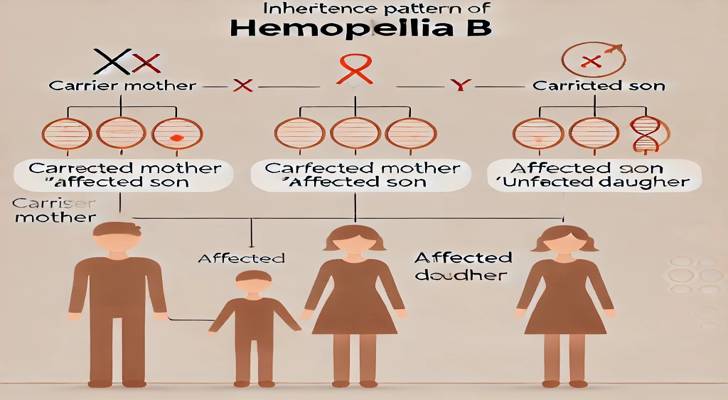Hemophilia B: Symptoms, Signs, and Causes

Inheritance and Risk Factors. The primary risk factor for Hemophilia B is having a family history of the condition. If a mother is a carrier or a father has Hemophilia B, there is a risk of passing the gene to their children. Sons of carrier mothers have a 50% chance of having Hemophilia B, while daughters have a 50% chance of being carriers. In about one-third of cases, Hemophilia B occurs due to a spontaneous mutation, with no family history of the disorder. Genetic counseling and testing are crucial for families with a history of Hemophilia B to understand their risks.
